 Historians have often wondered why Henry did not find his fourth wife, Anne of Cleves appealing. Part of the mystery lies in the fact that we have very few accounts describing her appearance and only two contemporary portraits. One portrait is the infamous betrothal portrait by Holbein which sealed her fate and the other is from the workshop of Barthel Bruyn the Elder (shown below).
Historians have often wondered why Henry did not find his fourth wife, Anne of Cleves appealing. Part of the mystery lies in the fact that we have very few accounts describing her appearance and only two contemporary portraits. One portrait is the infamous betrothal portrait by Holbein which sealed her fate and the other is from the workshop of Barthel Bruyn the Elder (shown below).Writers through the years have certainly not been kind to Anne. The reference to Anne looking more like a "flanders mare" than a princess was first made in the 17th century by historian Gilbert Burnet who critisized Holbein's painting as taking, "the common compliment of his art too liberally." Nothing could be futher from the truth. Holbein was known for his accuracy and attention to detail in his paintings. Most importantly, the whole purpose of sending him to paint Anne was to take a likeness. He did his job and was therefore never punished by Henry when the real life Anne did not meet his expectations.
Later historians have speculated that Anne was unattractive to Henry because she was “large-boned,” but I disagree with this assessment. Anne was reportedly tall and the layers of clothes certainly made her look like a stuffed sausage, but I suspect that Anne's body type may have been closer to thin and gangly than big-boned. I have already written about some of Anne’s finer qualities in a previous post.
 Find Me a Woman with Some Meat on Her Bones
Find Me a Woman with Some Meat on Her BonesBefore marriage negotiations began with Cleves, Henry had instructed his advisors to find him a heavy-set woman for his fourth wife. His exact words (and a bit of an understatement) were, 'I am a big man and in need of a big wife.' Yet, Henry contradicted his own words with his previous actions for he tended to be more attracted to small-hipped women like Anne Boleyn and Jane Seymour. Perhaps his days of slim women were over at the point in which he began marriage negotiations for his fourth wife?
Digging deeper, there is obviously more to attraction then someone's body build. And we also can't forget about Henry's political motivations toward the marriage for he may have simply not needed the alliance with Cleves as the marriage progressed. But Henry was obviously very much repulsed by his new bride too.
What did repulse Henry enough to annul the marriage and make Cromwell a head shorter?
The clue may be in the infamous rumor that Anne looked like a “Flanders Mare."

What is a Flanders Mare?
A Flanders Mare is not the graceful and delicate horse of a queen. In Medieval times, Belgium Horses were prized in wars for their tremendous size and strength. (show above).
Colored like a Flanders Mare
These heavy, war-like draft horses were typically black and ranged from colors to bay, bay-brown to chestnut. They were rarely lighter colors like they are today. Many accounts report that Anne was of a darker skin tone, the opposite of the beauty ideal of the time. When Henry asked Lord Russell what he thought of his new bride he replied that 'I take her not for fair, but to be of a brown complexion.'
Smells Like a Flanders Mare
I grew up around horses. I love horses. But let's face it. No matter how much you love horses you cannot deny that they stink. One of the biggest turn-offs for Henry was Anne's lack of hygiene. Maybe it was her smell that truly repulsed him? But wait....I have an even more far fetched theory.
As Skanky as a Flanders Mare?
Henry also told Anthony Denny, a member of the Privy Chamber, that she had 'breasts so slack and other parts of body in such sort that [he] somewhat suspected her virginity.' And if that was not bad enough he complained to his court physician of the 'hanging of her breasts and looseness of her flesh.' Could Henry have really suspected Anne's virginity?
 Later in the 17th century, Flanders Mares were not only prized for their strength, but also their eager willingness to pull heavy carriages. The Flanders Mares were mentioned in the diary of Samuel Pepys:
Later in the 17th century, Flanders Mares were not only prized for their strength, but also their eager willingness to pull heavy carriages. The Flanders Mares were mentioned in the diary of Samuel Pepys:Thence to my Lord’s, where I found Mr. Pierce, the surgeon, and with him and Mr. Sheply, in our way calling at the Bell to see the seven Flanders mares that my Lord has bought lately, where we drank several bottles of Hull ale. Much company I found to come to her, and cannot wonder at it, for she is very pretty and wanton.1
Pepys never really says who the “her” is but he seems to be making a double entendre between the horse wantonness and the unknown women. Interesting that he chose the always willing Flanders Mare to make his comparison. Perhaps the word "wanton" had a different meaning then? I suspect it means relatively the same thing.
In the eighteenth century, English writer and pamphleteer Daniel Defoe gives the prostitute and main character of his novel the fictitious name of Moll Flanders. He makes it clear that this is not her real name. In general, Defoe rarely named his characters and generally referred to people as “the elder brother” or “the nurse.” I doubt Defoe's choice of Flanders was insignificant.
I personally believe that Henry was not attracted to Anne because of a combination of factors. She lacked refinement and grace (she couldn’t dance or play an instrument), her darker complexion was not the beauty ideal of the time, she smelled when Henry was fastidious about cleanliness, and most importantly she may have exhibited an eagerness to please that Henry found unattractive. Aside from Henry's political motivations toward the match, we will never know for certain why the science of attraction failed, but perhaps if Anne had played hard to get she might not have reminded Henry of this eager draft horse.
Sources
Starkey, David. The Six Wives of Henry VIII. New York, NY: Harper Perennial, 2004
Weir, Alison. The Six Wives of Henry VIII. New York, NY: Grover Press, 1991
Pepys, Samuel. The Diary of Samuel Pepys, Hayes Barton Press, 1660 - can be accessed online in Google Books.
Warnicke, Retha M. The Marrying of Anne of Cleves: Royal Protocol in Early Modern England, Cambridge University Press, 2000
Daniel Defoe Wikipedia Entry
Notes:
1: Weir (p.227 )

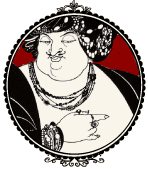

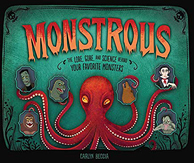
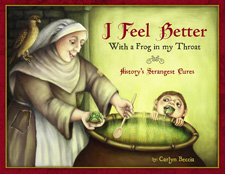
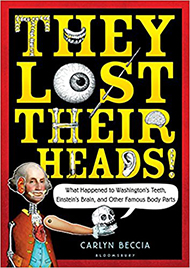

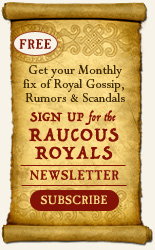
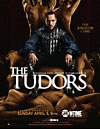

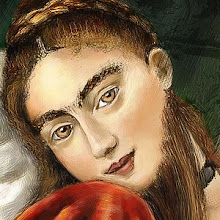
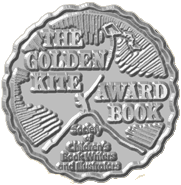
6 comments:
I've always wondered to why Henry was so repulsed by Anne of Cleves. After all even the Prince Regent managed to get it up for Caroline of Brunswick at least once to have a child. And she was none to clean either, and Prinny was probably the most fastidious person on the planet. It can't have been her lack of viriginity because we know that Catherine Howard was a bit of a slapper before her marriage. I'm going to go with the scrawny idea, and the lack of social graces.
"a bit of a slapper" ha ha that made me laugh. Anne had to be a virgin, but I wonder if Henry really did suspect otherwise or if he was just trying to find easy reasons to get rid of her.
It is impossible to know what turned him off and this is just a whole bunch of wacky theories that jump all over the place, but I just get annoyed when people assume that the Flanders Mare comment was in reference to her body type. It could have symbolized any number of things.
As usual, and excellent and insightful article!
I own a horse, which I call "Nag", and if I were to compare a woman to her it would be due to the size of her Arsch. But then, we of 18th century Austria are curiously possessed by both size and content!
Your Servant,
WAM
In support of your "skanky" theory in particular, it does seem that the word mare was slang for a whore of some type. As I recall, King Francis I of France refered to Mary Boleyn (ironically later a mistress of Henry himself) as his "English mare" alluding to her promiscuity.
There is one other often recounted theory that you missed--namely that Henry was unhappy with Anne because she wasn't diplomatic enough to hide her revulsion for him. He was, after all, far worse in looks at the time than she could possibly have been. The woman didn't have open, running sores, at least!
very true. I imagine it must have been tough to feign desire...even if Henry was the king of England.
Post a Comment